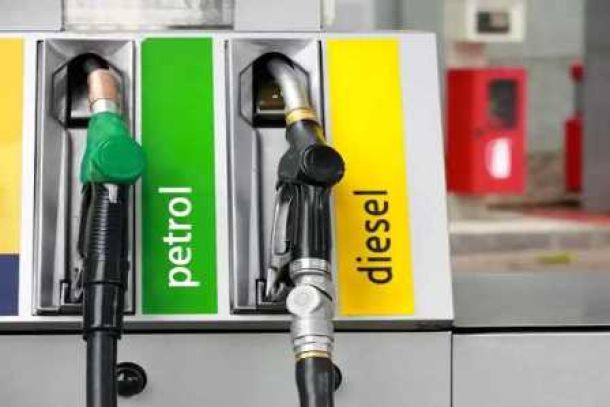How much more you’re paying at the tills for food than last year
The Pietermaritzburg Agency for Community Social Action (Pacsa) has released its annual report, showing how much food price inflation has hit over the past 12 months – especially for low-income households.
According to the group’s data, comparing prices between September 2015 and September 2015, food price inflation in its basket of 36 items hit over 15% in the past year.
Inflation was particularly high on foods that already carry high prices – meaning that there was far less money available for South Africans to spend on all other essential food items.
These high-price foods tend to be nutrient-rich: foods like meat, eggs and fish, vegetables and dairy products, Pacsa said.
“This year, along with substantial increases on the ‘big foods’; inflation on these nutrient-rich foods has also been very high. It means that nutritional diversity has been doubly threatened because not only is there less money to spend but the cost of foods has also increased,” the group said.
This has been particularly damaging to poorer households, who already suffer from nutrient deficient diets.
“Low-income households are really struggling. It is becoming more difficult to put food on the table,” Pacsa said.
“The drought and high temperatures has had a significant impact on food prices. Foods in the baskets of low income households increased sharply from November 2015, when the effects of the drought started to impact on the prices on the supermarket shelves.”
Data showed that overall food price inflation in the Pacsa Food Basket over the period of review was at 15.1%. In rand value, the cost of the basket increased by R243.63 from R1,616.97 to R1,860.60.

Most foods in the food basket increased over the period of review. 25/36 foods increased significantly (above 5%), with the average increase of these 25 foods at 22%.
The table below shows food price inflation in the Pacsa food basket over the past year.
|
Food |
Quantity |
September 2015 |
September 2016 |
Change |
|
Onions |
10kg |
R25.83 |
R45.18 |
75% |
|
Potatoes |
10kg |
R30.50 |
R51.20 |
68% |
|
Samp |
5kg |
R37.66 |
R51.66 |
37% |
|
Sugar beans |
5kg |
R73.82 |
R99.48 |
35% |
|
Maize meal |
25kg |
R170.80 |
R225.82 |
32% |
|
Curry powder |
200g |
R21.16 |
R27.15 |
28% |
|
White sugar |
10kg |
R106.81 |
R136.82 |
28% |
|
Apples |
1.5kg |
R12.45 |
R15.74 |
26% |
|
Cooking oil |
4L |
R63.99 |
R77.99 |
22% |
|
Rice |
10kg |
R67.16 |
R80.16 |
19% |
|
Fresh milk |
2L |
R24.02 |
R28.65 |
19% |
|
Beef stock |
240g |
R14.66 |
R17.16 |
17% |
|
Soup |
600g |
R20.21 |
R23.54 |
16% |
|
Maas |
2L |
R25.45 |
R29.48 |
16% |
|
Polony |
2.5kg |
R36.64 |
R4166 |
14% |
|
Beef |
1kg |
R48.32 |
R54.49 |
13% |
|
Eggs |
30 eggs |
R35.15 |
R39.32 |
12% |
|
Pasta |
1kg |
R21.49 |
R23.99 |
12% |
|
Cake flour |
10kg |
R73.15 |
R81.66 |
12% |
|
Rooibos tea bags |
200g |
R16.82 |
R18.66 |
11% |
|
Coffee |
100g |
R15.49 |
R17.15 |
11% |
|
Chicken necks |
6kg |
R99.70 |
R108.46 |
9% |
|
Carrots |
2kg |
R11.80 |
R12.65 |
7% |
|
Canned fish |
4 tins |
R57.96 |
R61.93 |
7% |
|
Salt |
1kg |
R10.65 |
R11.33 |
6% |
|
Yeast |
28g |
R12.15 |
R12.82 |
5% |
|
White bread |
8 loaves |
R82.03 |
R85.27 |
4% |
|
Brown bread |
4 loaves |
R37.57 |
R38.97 |
4% |
|
Frozen chicken |
6kg |
R128.47 |
R130.95 |
2% |
|
Canned beans |
3 cans |
R25.47 |
R25.47 |
0% |
|
Cremora |
1kg |
R37.49 |
R36.99 |
-1% |
|
Chicken feet |
4kg |
R73.95 |
R68.63 |
-7% |
|
Cabbage |
2 heads |
R14.31 |
R12.98 |
-9% |
|
Tomatoes |
3kg |
R28.33 |
R24.58 |
-13% |
|
Margarine |
1kg |
R36.82 |
R31.32 |
-15% |
|
Spinach |
4 bunches |
R18.71 |
R11.33 |
-39% |
|
Total |
R1 616.97 |
R1 860.30 |
15.1% |
Pacsa noted that there was growing talk around the need to raise VAT to bring in additional revenue to the national fiscus – however, it criticised such a move, saying it would impact low-income households more than anyone.
The report also reiterates Pacsa’s call for a decent minimum wage to be set, allowing for households to consume foods that meet family members’ nutritional needs.
A nutritionally complete basket of food that will serve a family of seven comes to R4,188.73, according to Pacsa. This was 15% higher than in September 2015, when the price was at R3,644.09.

When including all the other necessary monthly expenses – such as transport, rent, clothing and education – only a minimum wage of R8,000 would be able to provide people with a dignified life, the group said.
News Category
- International retailers
- On the move
- Awards and achievements
- Legislation
- Wine and liquor
- Africa
- Going green
- Supplier news
- Research tools
- Retailer trading results
- Supply chain
- Innovation and technology
- Economic factors
- Crime and security
- Store Openings
- Marketing and Promotions
- Social Responsibility
- Brand Press Office
Related Articles

Good signs for petrol prices in South Africa

Eskom wants to hike electricity prices by up to...

Big petrol price drop tipped for July

Fuel price cuts bigger than expected


